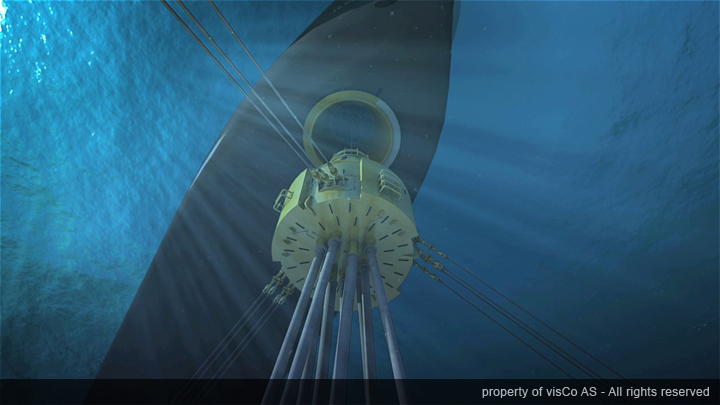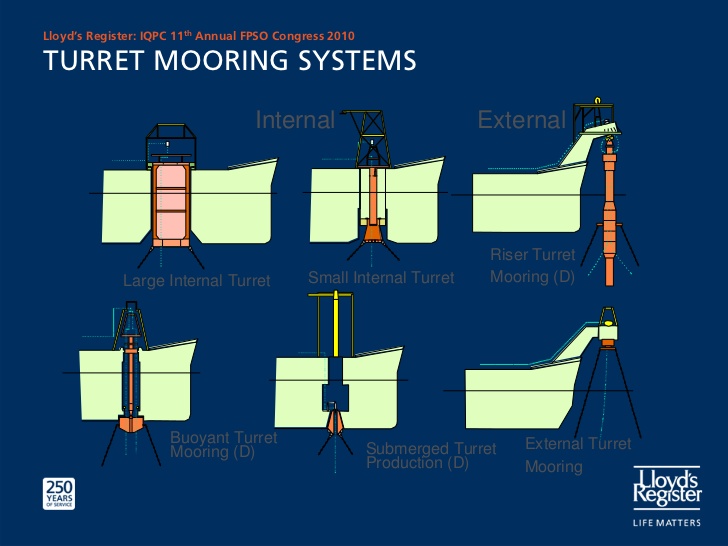
دنیای مهندسی سازه های دریایی
Offshore Structures
دنیای مهندسی سازه های دریایی
Offshore Structuresدرباره من
پیوندها
- king-of-offshore این تلگرام جهت اطلاع رسانی از مطالب وبلاگ برای گروه می باشد/This the Telegram for information of the blog for groups/Este telegrama la información del blog para grupos
ابر برجسب
offshore structures مهندس بیژن محمدی سازه دریایی pipelines Platform jacket wind turbine Persian Gulf soil mechanics Structural offshore konstruktioner retaining walls konstrukcje offshore offshore constructies offshore szerkezetek سازه های دریایی بیژن محمدی Bijan Mohammadiجدیدترین یادداشتها
همه- South Pars platform/سکوی پارس جنوبی
- Calculating the length of the ramp/محاسبه ی طول رمپ
- طراحی سالن چند منظوره ورزشی /Multipurpose sports hall design
- آکروپاد
- Single Point Mooring (SPM)
- Concrete armor parts used in breakwaters/قطعات آرمور بتنی مورد استفاده در موج شکن
- پایانه های شناورهای نفتی /Terminals of oil vessels
- مخزن آب 100 سال /100 years water tank
- نشریه شماره 71 محافظت ابنیه فنی آهنی و فولادی در مقابل خورندگی سال 1356
- کلیم در پروژه های عمرانی ،دریایی و ساحلی (آماده جهت همکاری با شرکتها پیمانکاری دریایی (لایروبی)
بایگانی
- فروردین 1404 1
- اسفند 1403 5
- بهمن 1403 1
- مهر 1403 1
- فروردین 1403 1
- آذر 1402 2
- مهر 1402 1
- شهریور 1402 1
- مرداد 1402 1
- تیر 1402 1
- اردیبهشت 1402 1
- بهمن 1401 1
- مهر 1401 1
- مرداد 1401 1
- اردیبهشت 1401 1
- دی 1400 1
- آذر 1400 1
- شهریور 1400 1
- بهمن 1399 1
- بهمن 1398 2
- اردیبهشت 1398 1
- فروردین 1398 1
- اسفند 1397 2
- بهمن 1397 3
- دی 1397 3
- آذر 1397 3
- آبان 1397 3
- شهریور 1397 10
- مرداد 1397 9
- تیر 1397 8
- خرداد 1397 3
- دی 1396 1
- آذر 1396 1
- مهر 1396 6
- شهریور 1396 2
- فروردین 1396 6
- اسفند 1395 6
- بهمن 1395 3
- دی 1395 3
- آذر 1395 12
- آبان 1395 4
- مهر 1395 2
- شهریور 1395 3
- مرداد 1395 1
- تیر 1395 8
- خرداد 1395 8
- اردیبهشت 1395 8
- فروردین 1395 13
- اسفند 1394 5
- بهمن 1394 4
- دی 1394 10
- آذر 1394 6
- آبان 1394 3
- مهر 1394 8
- شهریور 1394 10
- مرداد 1394 10
- تیر 1394 10
- خرداد 1394 10
- اردیبهشت 1394 10
- فروردین 1394 12
- اسفند 1393 18
- بهمن 1393 15
- دی 1393 15
- آذر 1393 7
- آبان 1393 9
- مهر 1393 18
تقویم
فروردین 1404| ش | ی | د | س | چ | پ | ج |
| 1 | ||||||
| 2 | 3 | 4 | 5 | 6 | 7 | 8 |
| 9 | 10 | 11 | 12 | 13 | 14 | 15 |
| 16 | 17 | 18 | 19 | 20 | 21 | 22 |
| 23 | 24 | 25 | 26 | 27 | 28 | 29 |
| 30 | 31 |
جستجو
Soil Mechanics Fundamentals and Applications,second edition,Isao Ishibashi,CRC Press,2015
Soil Mechanics Fundamentals and Applications,second edition,Isao Ishibashi,CRC Press,2015
This File is Password
Password: CE-MS MS.c Bijan Mohammadi
کلمه عبور/Password دانلود/Download

Chapter 1 Introduction
Chapter 2 Physical Properties of Soils
Chapter 3 Clays and Their Behavior
Chapter 4 Soil Classification
Chapter 5 Compaction
Chapter 6 Flow of Water through Soils
Chapter 7 Effective Stress
Chapter 8 Stress Increments in Soil Mass
Chapter 9 Settlements
Chapter 10 Mohr’s Circle in Soil Mechanics
Chapter 11 Shear Strength of Soils
Chapter 12 Lateral Earth Pressure
Chapter 13 Site Exploration
Chapter 14 Bearing Capacity and Shallow Foundations
Chapter 15 Deep Foundations
Chapter 16 Slope Stability
Foundation for offshore structures ǀ-Basics of soil mechanics
این فایل تصویر از کلاس آقای Dr.S.Nallayarasu درباره برای فونداسیون سازه های فراساحلی می باشد و در چندین قسمت است. این فایل به زبان هندی می باشد ولی پاور پوینت آن انگلیسی است جالب است.
درصفحه 24 پاور پوینت که نمایش گذشته می شود درباره FPSO طرز متصل شدن مهاربند یکی به سر کشتی و دیگری به انتهای کشتی در حال که FPSO باید حول محور 360 درجه می چرخد باید سیستم مهاربندی به برج گردان FPSO متصل باشد . تا FPSO حول محور خود بچرخد.
Foundation for offshore structures ǀ-Basics of soil mechanics
All text and change the color to use to download it
دانلود / Download کلمه عبور /Password




Applied Soil Mechanics with ABAQUS Applications,Sam Helwany,2007,wily & sons
این کتاب دارای 398 صفحه می باشد و کاربرد مکانیک خاک در نرم افزار ABAQUS می باشد و در سال 2007 چاپ شده است
Applied Soil Mechanics with ABAQUS Applications,Sam Helwany,2007,wily & sons
This file is password
password: CE-MS MS.c Bijan Mohammadi
All text and change the color to use to download it
کلمه عبور / Password دانلود / Download

The purpose of this book is to provide civil engineering students and practitioners with simple basic knowledge on how to apply the finite element method to soil mechanics problems. This is essentially a soil mechanics book that includes traditional soil mechanics topics and applications. The book differs from traditional soil mechanics books in that it provides a simple and more flexible alternative using
The finite element method to solve traditional soil mechanics problems that have closed-form solutions. The book also shows how to apply the finite element method to solve more complex geotechnical engineering problems of practical nature that do not have closed-form solutions. General soil mechanics principles are presented for each topic, followed by traditional applications of these principles with longhand solutions, which are followed in turn by finite element solutions for the same applications, and then both solutions are compared. Further, more complex applications are presented and solved using the finite element method.
The book consist of nine chapters, eight of which deal with traditional soil mechanics topics, including stresses in semi-infinite soil mass, consolidation, shear strength, shallow foundations, lateral earth pressure, deep foundations (piles), and seepage. The book includes one chapter (Chapter 2) that describes several elastic and elastoplastic material models, some of which are used within the framework of the finite element method to simulate soil behavior, and that includes a generalized
